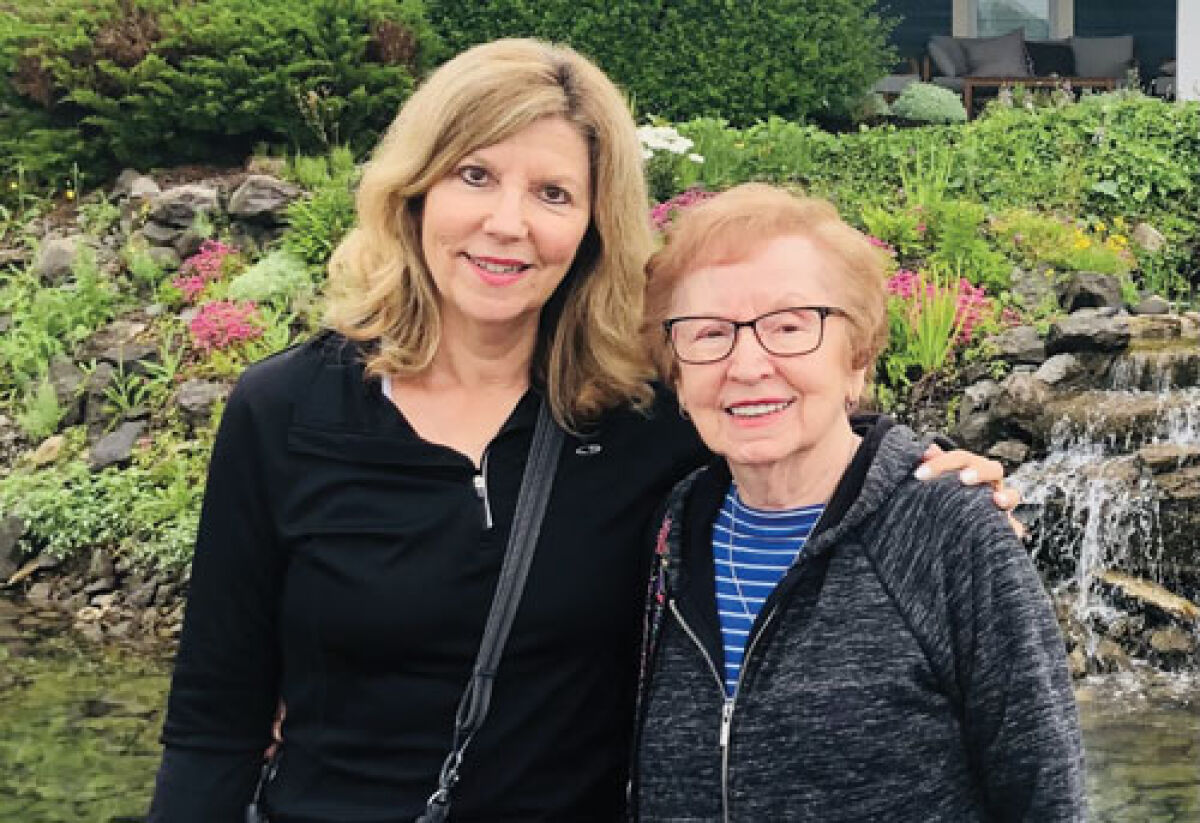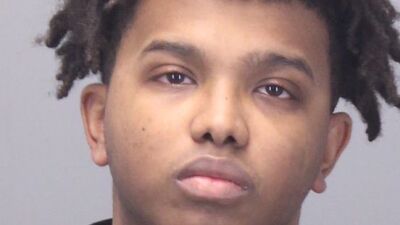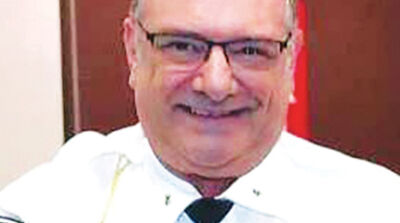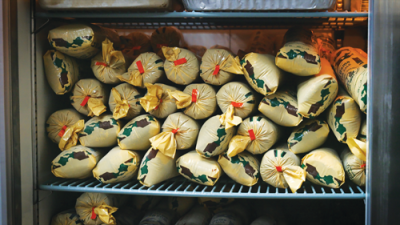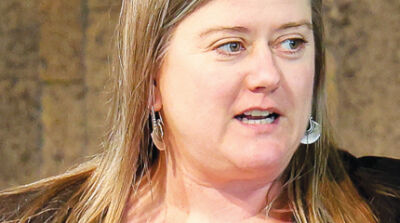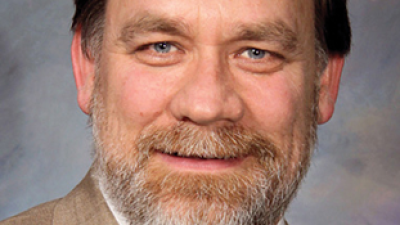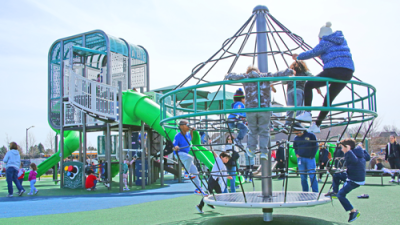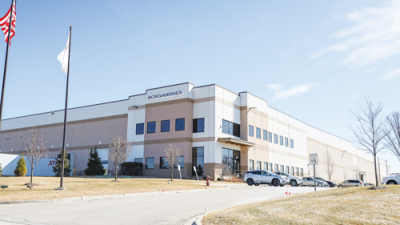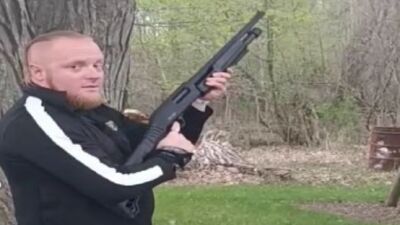WEST BLOOMFIELD — Seven years have passed since West Bloomfield resident Lori Klisman Ellis first learned of the horrors that her mom endured as a Holocaust survivor.
Ellis’ dad also survived the Holocaust, and when her mom — who is now 93 years old — had a conversation with her about it, she said it was like a secret that finally came out.
“I was on a cruise with my family, and when I came back, my mom said, ‘I have to tell you something I did, Lori; I hope you’re not gonna be upset,’” Ellis said. “I’m like, ‘What did you do?’ She said, ‘I shared my story.’”
As it turned out, her mom had shared her story of being forced into the Lodz Ghetto in Poland, followed by three concentration camps, for a video about the Holocaust, in order to have that period of history documented.
Both of Ellis’ Jewish parents were born in Poland, which was invaded by Nazi Germany in 1939.
Her mom was 10 years old when she was forced into the Lodz Ghetto. She spent about five years there before being moved to different concentration camps.
Living at the Lodz Ghetto and the concentration camps was her mom’s life until 1945, when she and other Holocaust survivors were liberated by military forces opposed to Nazi Germany.
Ellis also learned that her dad was forced into the Srodula Ghetto in Poland, before going to two concentration camps.
Although her parents didn’t know each other during the time of the Holocaust, she stated that they both spent time at the Auschwitz-Birkenau concentration camp in Poland.
After learning what happened from her mom, Ellis went on to write a book titled “4,456 Miles: A Survivor’s Search for Closure.” The book was released in 2019.
“The book talks about me learning about my mom’s life as an adult — just seven years ago,” Ellis said. “So part of it is, it’s like an awakening of a second-generation survivor, since I didn’t really know anything; I was kinda kept in the dark. … Basically, my mom and dad never wanted to talk about it because they wanted to shield us and protect us from all the pain and suffering that they went through, but as a second-generation survivor, I felt it was kinda like my duty to do research and learn about the Holocaust and share it with my children, my brother and sister-in-law, and my niece, nephew and cousins. … The book is quite intense.”
Revealing her story has not been an easy journey for Ellis’ mom, Sophie Tajch Klisman.
“It was extremely challenging to share my story because it was painful, and I had to relive all those horrible experiences,” she stated via email.
Ellis was a speech and language pathologist for more than 35 years before retiring. She attended Oak Park High School, which was followed by attaining an undergraduate degree from Michigan State University and a graduate degree from Eastern Michigan University.
Ellis is married and has two children and a grandson.
Her mom was born in Piotrkow, Poland, and her dad, Bernard, was born in Sosnowiec, Poland.
Sophie’s mother, father, and older brother were each at the Lodz Ghetto, where they all died.
“Unfortunately, she had to watch or witness that slow, painful death from starvation,” Ellis said. “Hundreds and hundreds of people were dying every day, and that’s where her parents and one of her brothers died. She said you got one piece of bread for the day and maybe some watered-down soup. She shared (that) her mother hated to see her kids hungry, so she would sacrifice her one piece of bread to give to the kids.”
Ellis shared more details about her grandmother’s sacrifice.
“She, unfortunately, died from starvation, and then a year later, (Sophie’s) father died, she said; horrible disease and death. And then, like seven months later, her older brother died from that,” Ellis said. “So my mom kept on thinking she was gonna be next; she was the youngest child. What are the chances she would survive? … She doesn’t know how she actually was able to survive.”
According to Ellis, all of Sophie’s relatives, with the exception of her sister, Felicia Shloss, died during the Holocaust.
“She had one older sister and another older brother that were transported to the first camp, Auschwitz-Birkenau,” Ellis said. “Once they arrived in Auschwitz-Birkenau, they kinda tore apart the family. They took her brother and separated him — the men were on one side and the women were on another side — and, unfortunately, they never saw her brother again. But her and her sister stayed together the whole time.”
Without the presence of Sophie’s sister, Ellis said, Sophie probably could not have survived.
Although both Sophie and her sister, Felicia, survived the Holocaust, there were frightening moments, including having to interact with Josef Mengele, a German officer and physician who performed deadly experiments on prisoners and selected some to be killed in gas chambers.
“When she arrived in Auschwitz, if you were not 16 years of age, they would put you in the gas chamber,” Ellis said. “My mom didn’t realize that, but during the selection, Dr. Mengele — the infamous doctor — he usually didn’t talk. My mom said he would just wave his finger to the right or to the left, and they never knew what that meant. … They didn’t know which line was to live and which line was to die, but he stopped my mom and he asked her how old she was. And my mom thought she was gonna die at that point, like she did something wrong. And my mom said it was just a miracle that she lied and said she was 18, when she was only 15. … And then he still wasn’t quite sure if he should believe her, and then asked her what year she was born. So she was able to calculate the year, to make her seem older, and he waved to the right,” Ellis said. “And my mother was with her sister then. They didn’t know if that was to live or die, but they were together, and they were so relieved. That was the line that meant you could work and to live — they didn’t know for how long.”
Ellis also recalled that, during a time when she showered, her mom didn’t know if toxic gas would be released.
“When my mom and (her) sister went in the shower, it malfunctioned, and water came out, so they survived,” Ellis said. “There were so many different incidents that my mom just calls it a miracle that she survived. … My mom and her sister went in box cars to another camp after Auschwitz — it was Bergen-Belsen, where Anne Frank was — she was there during the same time, and conditions were even worse.”
Ellis said that her mom had to sleep on the ground, where there was hay; there was barely any roof.
“When it rained, it poured in on them. My mom, I think, got strep throat at the time,” Ellis said. “She said there were no doctors, and you don’t want to tell anyone you’re sick because they would just get rid of you.”
The last camp Sophie was at was Salzwedel, which was an ammunition factory in Germany. She worked midnight shifts at the camp.
Sophie’s camp experiences included being hit and beaten by female Nazi officers.
On April 15, 1945, Sophie’s life, like so many others, took a major turn for the better. Sophie could hear airplanes and explosions, and she hoped that it meant that military forces opposed to Nazi Germany had arrived.
“Sure enough … the American GIs came, they opened the gates, and they said, ‘You’re free.’ And she said all the women were running out to grab food — my mom said she just wanted to lay down and go to sleep. And then her sister brought some food back for my mother,” Ellis said.
Following the liberation, Ellis said, Sophie and her sister lived in displaced persons camps for several years “until all the red tape was figured out.”
Eventually, both Sophie and her sister immigrated to the United States in 1949.
“Once she came to the U.S., she had to start with her sister from scratch. There was no family here,” Ellis said. “She said her sister married somebody in the displaced persons camps, another survivor, and they had a child. So when my mom came to the U.S., she lived with her sister and her family.”
Both Sophie and Bernard originally went to New York before making a move to Detroit, where they didn’t know anyone. They both attended night school at Central High School in Detroit, in order to learn English.
The couple met at the night school and were married in 1951 in Detroit.
Sophie and Bernard lived in Detroit, which is where Ellis and her brother, Mark, were born.
The family later moved to Oak Park.
After she was in high school, Ellis said, her parents moved to Novi.
For work, Sophie was a salesperson and fashion consultant for local stores.
Bernard was involved in men’s clothing sales and also did some tailoring.
He died around nine years ago.
Despite the horrors of her past, Sophie has found a way to move on with her life after the Holocaust. According to Ellis, her accomplishments include participating in the Senior Olympics, in which she won a gold medal and broke the state record for power walking at the age of 90.
“The Holocaust, I feel like it doesn’t define her — it was one horrible part of her life, but there’s so much more to her than just that tragedy,” Ellis said. “So, she’s pretty resilient.”
In 2016, Ellis, her husband, Jeff; her brother, Mark; her sister-in-law, Anne; and Sophie took a trip to Poland. It was Sophie’s first time back in her native country since the Nazi invasion.
Ellis’ book covers some of those experiences.
“It covered our 10 days in Poland — retracing our roots, where she was born and where my father was born, as well as putting up a tombstone in honor of her family in the exact spot where they perished,” Ellis said.
Ellis described the trip to Poland as “unbelievably emotional, spiritual (and) so moving.”
“It had a little bit of everything,” she said. “It was disturbing, and it was fascinating.”
Ellis described both of her parents as dedicated and loving.
She also said that they were both overprotective, and “now I understand why.”
“My dad was a very, very hard worker — always wanted to provide for the family,” Ellis said. “They always felt like they never really had an opportunity for an education, because it was cut short, so they pushed education — how valuable it is. So I just feel so blessed; I had supportive, loving parents.”
Since sharing some of her past with her daughter, Sophie has appeared at speaking engagements.
Along with one of her American GI liberators, Doug Harvey, she is scheduled to speak at First United Methodist Church of Troy at 7 p.m. Jan. 27, which is the date of International Holocaust Remembrance Day.
In recent years, Sophie had the opportunity to meet Harvey, and that is also covered in Ellis’ book.
“It was extremely emotional to meet Doug Harvey,” Sophie stated. “It brought back memories of April 15, 1945, the day I was liberated.”
Sophie has also gone to schools to speak to students.
“I know it’s so hard, painful and emotional, but she just feels like, since my father died and he never shared his story, and one of her best friends died — she never shared her story — she just felt the need to start talking about it and sharing the dangers of all this antisemitism, and it’s so much on the rise now,” Ellis said.
Sophie shared a similar sentiment.
“My friends and husband passed away without ever sharing their traumatic experiences in the Holocaust,” she stated. “I felt it was time to tell my story and speak for those unable to speak.”
Sophie shared what it was like to be part of her daughter’s book.
“It was a relief to know my story was finally told,” she stated. “I hope this book will be read by many people so this will never happen again.”
Ellis, who has also authored other books, including in the genre of children’s and educational books, said that her mom wants to be independent and exercises every day.
Other topics of Ellis’ book about her mom’s experiences include sharing tips about learning how to research family trees and educating about bigotry.
“It also shares a little bit about resiliency, how after the war, my mom and my dad had a full life — they were successful (and) happy, but they learned to kinda compartmentalize the past and keep that one little section tucked away in their hearts,” she said.
Ellis’ book was published by Arkett and can be found at local-author.com. It can also be ordered on amazon.com.
 Publication select ▼
Publication select ▼